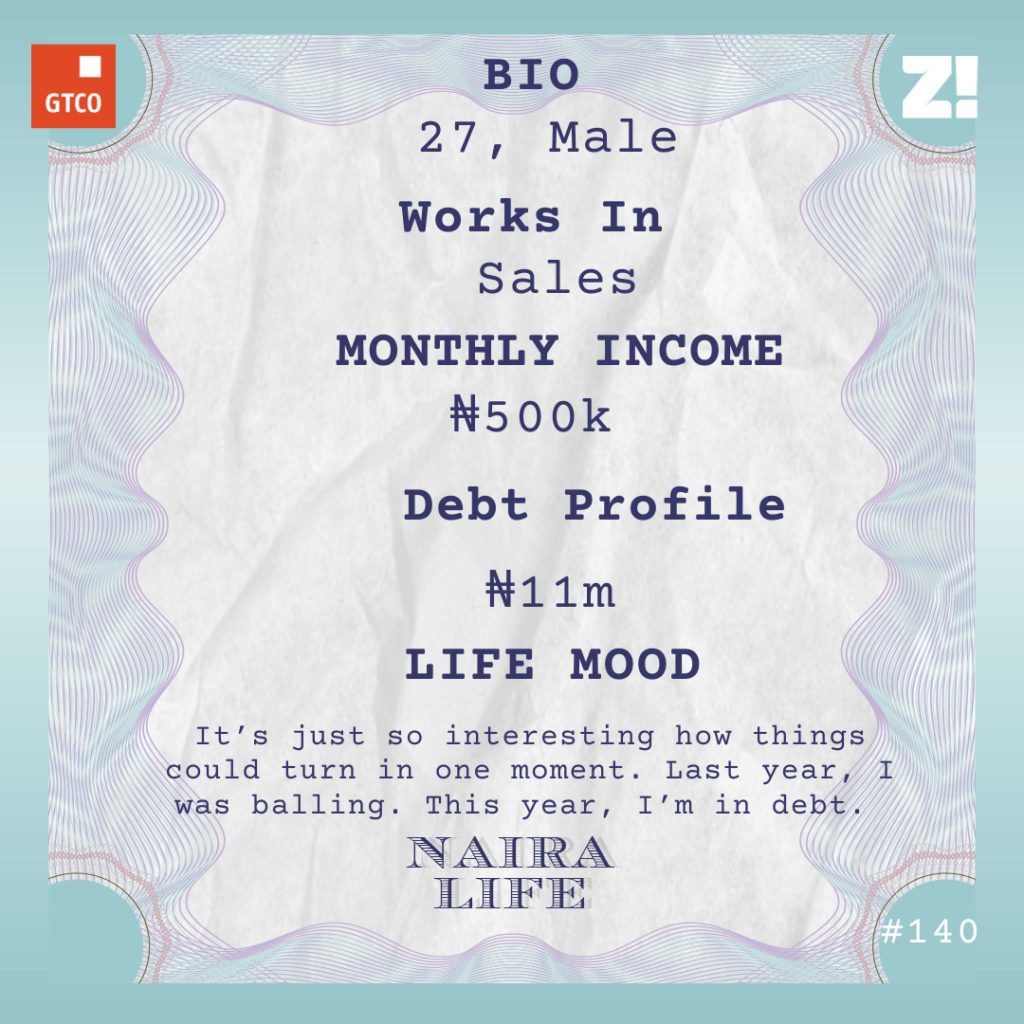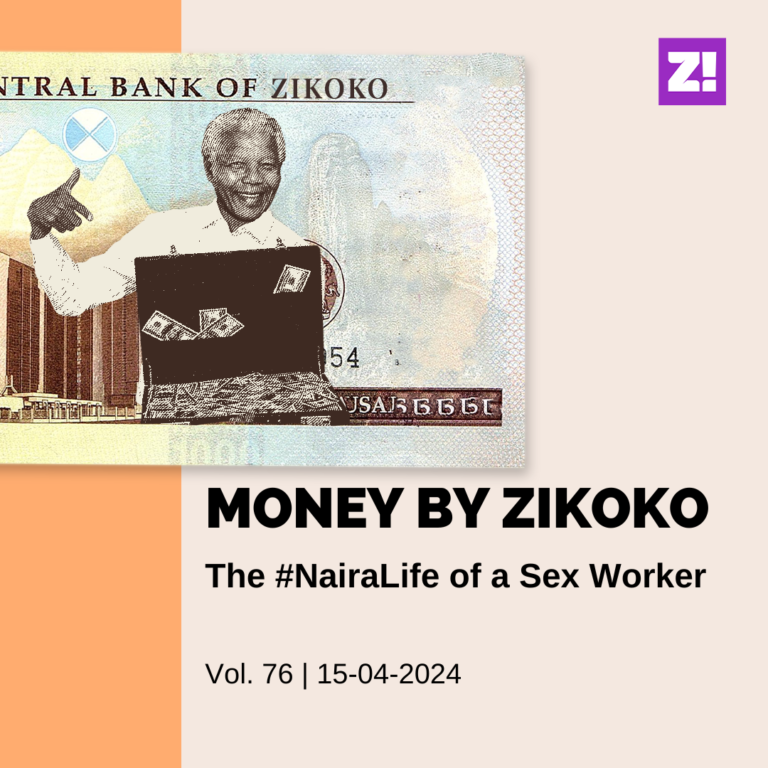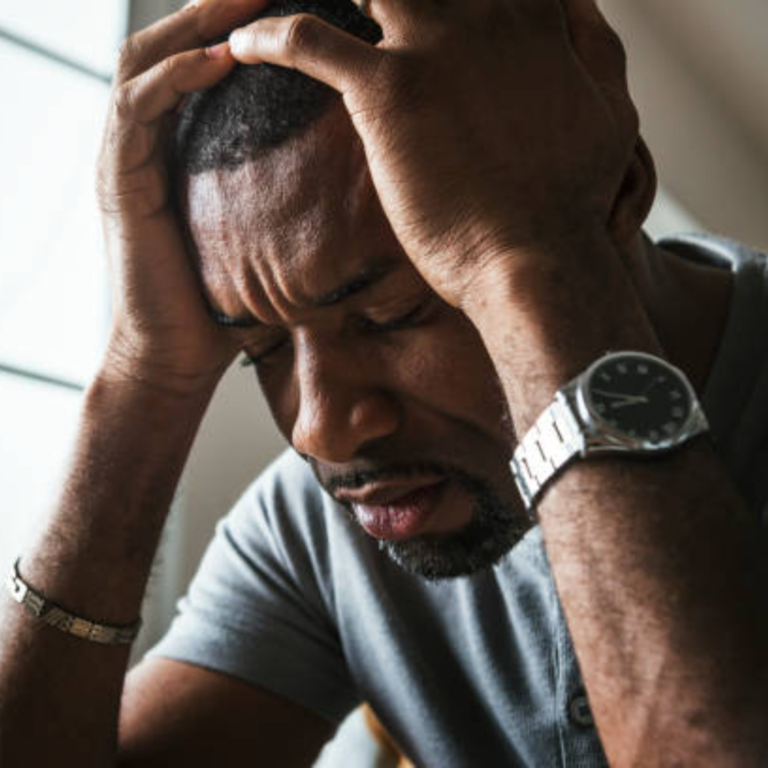Every week, Zikoko seeks to understand how people move the Naira in and out of their lives. Some stories will be struggle-ish, others will be bougie. All the time, it’ll be revealing.
This week’s Naira Life is brought to you by QuickCredit. With QuickCredit, you not only get the funds you need instantly, but you also get to pay back at the lowest interest rate in Nigeria.

The 27-year-old sales manager in this #NairaLife has been investing in a couple of high-risk businesses since 2018. In 2020 alone, he made more than ₦5m in profits. But things took a dark turn in 2021 and now, he’s in debt of ₦11m.

Let’s take it back to the beginning, what’s your oldest memory of money?
When I was five, My mum let me keep the monetary gifts from guests who visited us. It was 1999. It was also the first time I paid attention to the value of money. One of my earliest purchases were toy soldiers and balloons, and I learnt that X amount of money could get me Y.
Lit. Tell me about what it was like growing up?
My mum was a contractor and my dad was a businessman. Between the time I was born and the time I clocked six years old, we were comfortable. Afterwards, I started to get the feeling that we might be broke. On the outside, things looked good — we lived in a big house, a car drove me and my three sisters to school, and we went to good schools. But we were living on the benevolence of relatives abroad. We didn’t have conversations about money, so I figured it out myself.
How?
In 2003, my mum opened a shop to sell snacks and soft drinks alongside her contracting business. I was nine years old at the time.
It wasn’t that bad, though. And staying at the shop to help my mum out was my first introduction to how to exchange value for money. I would use that knowledge to make money for the first time in secondary school.
What do you mean?
I was a boarding student, and my allowance was between ₦500 and ₦1k per term. In a good term, I could get up to ₦2k. When I was in JSS 3, I noticed that there was a gap between the demand and supply of garri in the hostel though the locals in the town my secondary school was in were major producers.
I laid out my plan and figured out a way to sneak out of the school during closing time, buy some garri in town, sneak back into school and sell my proceeds at a markup. When I started, I’d buy garri at about ₦160/congo and sell for ₦20/cup.
Each congo had about 16 – 20 cups. I was balling, man
Sweet.
I was living primarily on what I could get at the tuck shop, and this was how I ate into my capital.. Before the term ended, I couldn’t make the town runs anymore. I lost interest and went back to living on my allowance.
You could have picked it up again the following term…
I could have, but I thought about the risks involved and decided it wasn’t worth it. I had been caught sneaking into school once or twice, so suspension or expulsion could be on the table if I was caught again.
Fair enough. What happened after?
My allowance wasn’t a lot of money, but it always came. Nothing much happened until I went to the east for university in 2011.
My allowance became ₦10k per month. I wasn’t pressed for money, but my itch to make my own money kicked in again in the second semester of my first year in uni.
What did you do this time?
It was post-UTME time, so there were lots of people who didn’t know how to navigate the school. I saw an opportunity here and printed copies of the school map, which I sold for ₦20 each. I made about ₦2k from this.
Importer, Exporter.
I was studying engineering, so there were lots of drawing assignments. I wasn’t particularly good at this, but one of my friends was. I got another idea. I’d find people who needed help and charge them ₦1500 to sort it out for them. Then I’d bring it to my friend and give him ₦1k. I was pretty much making money for him and myself.
In 2013, I tried to punch above my weight. I was in Lagos with ₦20k I wasn’t using with me. Before I left, I used the money to buy shirts to resell in school. Each shirt cost between ₦1k and ₦1500, but I sold them for anything between ₦1200 and ₦2500 when I got back to school. I made some money, but it wasn’t enough to cover my cost of returning to Lagos to restock, so I let it go. While I was trying to figure out what to do, a scholarship I had applied to in 2012 came through and I was going to receive ₦100k per year. The first time the scholarship money entered my account, I bought myself a new phone, and it cost me ₦32,500.
I was back on the road to Lagos on some other business the following year. This time, I bought five fake Movado wristwatches when I was returning to school and each one cost ₦2k.
How much did you sell them for?
₦5k each. But again, the profit I made wasn’t enough to sponsor another trip to Lagos. Not much happened after that and I finished university in November 2016.
Post-uni?
I moved in with my eldest sister in Lagos. In February 2017, someone at her church connected me with someone at a data agency — they were working on an ease of doing business survey and were looking for hands to help them. My job was to walk up to the CEOs of some top companies and get them to participate in the survey.
How much did this pay?
₦15k at the beginning of the exercise as mobilisation fees and ₦1500 for every successful response after that. Here was the deal: they could only pay me if I returned with a filled questionnaire and the business card of the CEO in question. The exercise lasted for two weeks, and at the end of it, I made an extra ₦15k — I managed to get 10 questionnaires filled.
As soon as the exercise ended, I got a call from someone, inviting me to an interview. Although fake job interviews were very popular at the time, I went anyway, CV in hand. It turned out that it was a legitimate job opportunity with a tech company. Two more interviews followed and they hired me as a support staff. What sold me was a WordPress website I had built some months back.
Whoop!
I resumed in March 2017, and my starting salary was ₦50k. In August 2017, I pitched myself to one of the co-founders and asked if I could join the business development team.
Why?
My thinking was that I could work anywhere that needed sales and business development skills. Also, if I could make money for a company, chances are that I’ll learn how to make money for myself in the process.
Right!
The man was impressed and agreed to let me join the team. Before the year ended, my salary was revised to ₦100k. By this time, I had developed an interest in investments, but I couldn’t do a lot because I didn’t have a lot of liquid cash. This changed in December 2017.
Ghen ghen. How?
The company I was with shared the profit they made during the year among employees, and I got ₦1.5m. I almost ran mad when the money hit my account.
The excitement died down after a few days, and I realised that it was the perfect opportunity to put some money away. I had been paying a lot of attention to the Nigerian stock market and Exchange-Traded Funds — treasury bills were giving between 17% and 24% returns per year. I opened a mutual fund account with a bank and put ₦1m in it. I don’t know what I did with the remaining ₦500k but most of it was spent on lau-lau.
In February 2018, a friend who was starting an agribusiness reached out to me to invest in his business. We ran the numbers and I negotiated a 22% ROI deal in six months. I liquidated my mutual fund account and gave him ₦1m. I also spoke to a few friends who had money and convinced them to drop some. I got ₦1m each from three people and gave it to the guy. However, I told my friends who dropped the money that their investment was going to return 20% after six months.
So you get a 2% profit from each of them.
Exactly. The investments matured after six months, and I returned their capital and ROI. I made ₦60k in total from the three of them and an extra ₦200k from my own investment. It went so smoothly, I was like, “Wow. You mean I can go around making money like this?”
Guess what I did next?
What?
I started researching how asset management worked and acted on it. The plan was to look for businesses I could invest in, evaluate the risk structure of the business and convince some of my friends to invest in them. At the end of each cycle, I would get a percentage of the ROI they make. My friends respected my knowledge of investments already, so I thought that it was best to leverage it.
How did it go?
Nothing much happened until June 2018. I bought a phone from someone I knew from uni, and he told me about how he imported the phones into the country after buying them on Amazon. He promised me an ROI of 30% every three months if I gave him some money, and I was sold. I told my guys and raised ₦500k. In September, he paid back the capital and ROI. Now, I had two investment options I was running — agribusiness and phone importation. I stuck with them until 2019 when I found something else to invest in.
Tell me about it?
Real estate and rental properties. The lady who told me about it was renting a couple of houses every year and furnishing them. She had a relationship with people who had expatriates coming into the country and she shortlet the apartments to them. It was very capital intensive, but the numbers looked good.
What were the numbers?
25% every three months.
Hmm. Omo.
I liquidated my investments in the agribusiness, raised ₦1.5m and gave it to her. Exactly three months later, she came through and I got my capital and ₦375k. It felt so great.
It was still the middle of the year, so I figured I could make more before the year ended. The lady and I spoke at length and she explained the value chain to me. Subsequently, I wrote a proper proposal and sent it to everyone I knew would be interested. Before December 2019, I’d raised about ₦7.7m from 15 clients. And my personal chest had grown from ₦1.5m to ₦3.6m.
2020?
A couple of things happened on the work front. I left my job at the tech company — I was earning ₦200k at this point — and got another sales job in edutech, which increased my monthly income to ₦300k. In July, I moved jobs again and started earning ₦350k/month.
My asset management hustle had grown too. At this point, I was managing more than ₦20m broken down into bits and pieces in different investments, but the two prominent ones were the rental properties deal and the agribusiness.
Break it down for me, please. How did you move from managing ₦7.7m to ₦20m in less than a year?
Word of mouth marketing. The people I was making money for were referring me to other people.
That reminds me, I was also buying investments off the people whose money I was managing. Let’s say someone invested some money at 20% for three months and they wanted to liquidate after a month, they would have to forfeit some percentage of their ROI. I’d pay them with my own money and get it back when their investment matured. This was the drill in 2020 and by December, I’d made more than ₦5m in profit. My personal wealth was about ₦8m.
However, I ran into my first set of problems in January 2021.
What happened?
I began to suspect that the rental property hustle wasn’t as good as it was anymore. Payments had started coming in late, so I liquidated the money I had with the lady — about $11k. The next question I had was: “What else can I invest in?”
When did you find an answer?
The same month. I was in contact with some guy in the north. He was an aggregator who had relationships with farmers. He helped them facilitate the sale of their products — mostly maize and rice — to big companies. He pitched what he did to me, gave me the projections and we negotiated a 50/50 profit-sharing agreement. This was the riskiest investment opportunity I was in yet, but I had previously invested a token with him as proof of trust and he came through.
I raised ₦14m from nine people, promising them 1.2% ROI per week, but the money would be locked in for a quarter. The agreement I had with the guy was that he’d pay me about ₦18m in April, so I could use it as proof to raise more money. April came, and nothing came in.
Did he say why he couldn’t make the payment?
He claimed he had run into some problems with law enforcement. And for some reason, I believed him. My primary problem was that I had to pay two people back their money in the same month— ₦4.2m and ₦700k respectively. I settled that with my personal money, which brought my savings down to ₦100k. I wasn’t bothered because I still thought money was coming in.
By June, more people’s investments had matured and they had started calling me. I came clean and told them the guy was in some trouble, but I promised that I’d get their money out in two weeks.
It eventually turned out that there was no issue with law enforcement — this guy had diverted the money somewhere else and now, I had a debt of ₦9m on my head.
OMO.
For the first time ever, I clocked that my salary was ₦350k.
I had to think fast. In the short term, I took out a loan of ₦1m from a loan company and another ₦2m from two friends to offset some of the debt,. Anyway, my debt profile is about ₦11m now.
One good thing happened in July though.
What was that?
I got a new job which brought my monthly earnings to ₦500k/month. I’ve been using most of it to service my debt.
Let’s take a look at your monthly running costs.
Debt repayment — ₦350k
Tithe — ₦50k
Ajo — ₦50k
So you live on ₦50k/month now?
Pretty much. I started doing this in September, and it didn’t work out. The only reason I survived was because someone gifted me ₦500k. I don’t know how it will go in October. This is what my budget looks like now:

It’s just so interesting how things could turn in one moment. Last year, I was balling. This year, I’m in debt.
I’m so sorry, man. How do you hope to recover your investments and settle your debts?
I’ve started the legal proceedings, and that can only end in two ways — I get the money back or not. The other option I’m working on is finding someone to buy the debt off me.
How does that work?
Whoever it is will write off my debt, and I’d pay them back over a period of time. I haven’t found anyone willing to do this, but man can hope.
I’m curious about how all this hustling has shaped your perspective about money?
Money management is all about courage and risk. I took a big risk, and it burned me a little. When all of this is over, the next risk I’m going to take will be bigger. I think I have some more understanding of how to properly insulate myself from the downsides of high-risk investments now. It’s okay to have an appetite for risk as long as you’re calculative about the places you put your money into.
I’m rooting for you. When was the last time you felt really broke?
A couple of weeks ago. I had to borrow ₦2k from a friend to buy airtime. The week before that, I borrowed ₦3k from another friend to buy fuel. I haven’t been this broke since 2014.
I imagine there’s a part of your finances you think you could be better at now?
Saving. I never quite learned how to save for a rainy day or have an emergency fund. With everything that’s happened the past few months, it wasn’t the smartest decision. Saving takes more discipline than investing, but it’s equally worth it.
I hear you. On a scale of 1-10 now, where does your financial happiness?
3. Having to plan how to clear my debt is a big drag on my life, and I shouldn’t be dealing with it. But you see, once it’s cleared, I’m moving straight up to 9. I don’t even want to know.
I’m curious, do you have a clear timeline of when this will happen?
No, but man can hope.
Great! You got to the end of this article. Know what’s even better? You can get QuickCredit faster than the time it took you to read this article. With Quickcredit, GTBank customers can get N2million in less than 2 minutes and pay back over 12 months at an interest rate of 1.5%. No forms. No collateral. No hidden charges. Get Your Quick Credit on GTWorld





